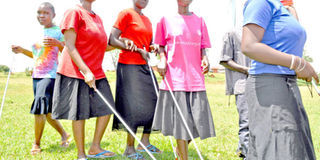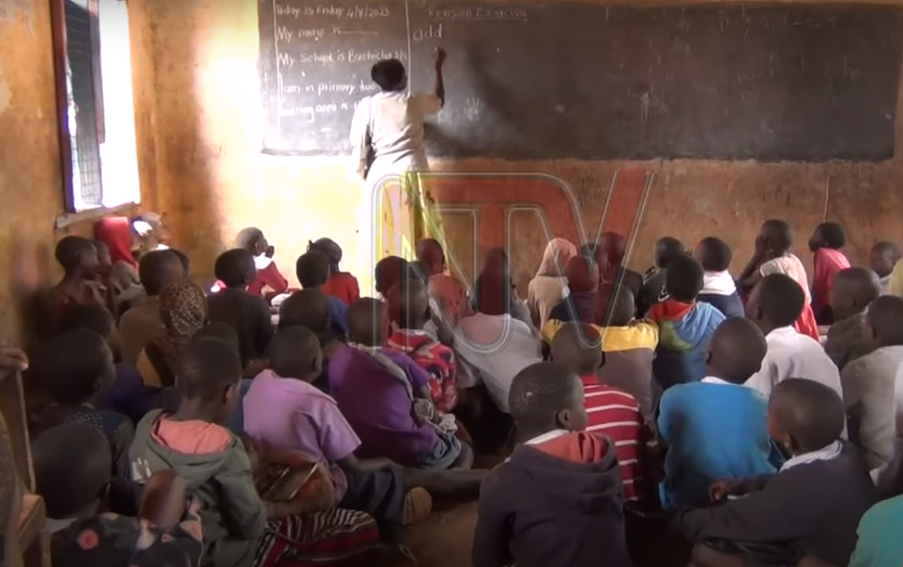Teaching special needs children in lockdown

The downside of inclusive schools is the violence that some children face on account of their disability. PHOTO BY RACHEL MABALA
While children in mainstream school may be following teaching sessions on various TV/radio stations, it may not be the same for children with special needs owing to their impairments.
At Dawns Special Needs Centre, Florence Namaganda says ensuring learning continuity during the lockdown is difficult. Namaganda says they cater to a wide range of children with special needs from mild to severe with conditions such as cerebral palsy, autism, hydrocephalus and spinabifida, intellectual disabilities, dyslexia and other learning disabilities.
“At the beginning of the lockdown, we gave each child a schedule (time table) with different daily activities according to their needs and academic work. The lessons included numeracy, literacy, self-care and activities of daily living. That is not forgetting activities that enhance their speech, attention and concentration, movement and motor skills, and sensory integration,” Namaganda says. The mode of follow up was that children do the work and send it back to the school on a weekly basis in exchange for more lessons or activities.
Florence Nsangi, the head of the special needs department at Hill Preparatory School, shares that some of their special needs children are in the mainstream following the same curriculum as ‘normal’ children.
“The assessment that drives where these children should go is done by a team of multidisciplinary persons. That also helps us know if we can take on a child or not. Nonetheless, the blind and deaf are not taken due to lack of facilities,” Nsangi explains.
Other special needs children that cannot fit in mainstream classes receive one-on-one attention and are grouped depending on their abilities. “Those in groups one to three are those that are still learning self help skills and during this lockdown, we encourage parents and siblings to get more involved in their lives,” she shares. However, the challenge that some parents are sharing is that the children are at times rigid.
“Apart from sharing strategies such as starting small before progressing to bigger activities, such as starting with washing a handkerchief, we call and talk with the children so that learning is eased.
Ultimately, we need these children to become self reliant.” Nsangi adds that those in group four are doing practical skills such as weaving.
Julius Oyet, an occupational therapist at Tunaweza Children’s Home, says they previously only took in children up to 14 years.
“However, as the year begun, we wanted to expand our scope but that was paused when lockdown started,” he shares. To ensure that their children continue achieving their milestones, they have continued with therapy from home.
“The parents take instructions from therapists and implement them at home. However, to ensure that all is well, the parents share a video with the therapist on how they are progressing. From that, the therapist can advise the parent either by phone or Whatsapp,” Oyet explains. While all these efforts were put in place, cutting off use of private transport caused a few hiccups. For example, Namaganda says it became harder for parents to pick up work and for teachers to come to the school.
“We resorted to sending lessons home via WhatsApp and email. We also send home therapy activities for parents to do with the children since most of our children need therapy. The parents also have a WhatsApp group where they share their challenges and victories as well as questions and we are available for calls to explain whatever might not be clear to them,” she speaks of the adjustments.
Nsangi says that for those in group four, materials are used up. “While some have improvised with local materials such as banana fibres, others have given up. We are looking for ways to help them continue learning,” she says.




